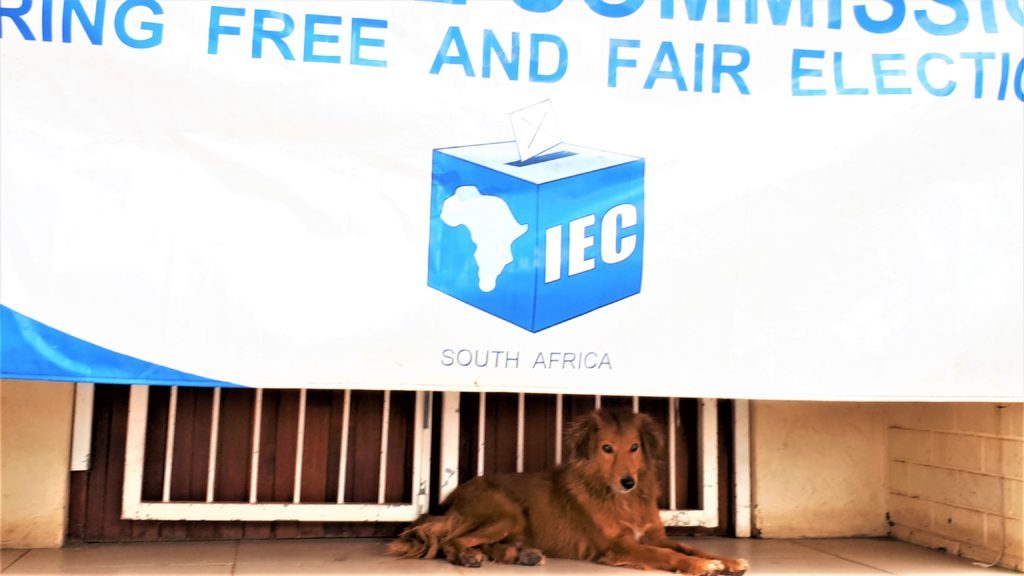STEVEN LANG
The Chief Electoral Officer of the Electoral Commission (IEC), Sy Mamabolo confirmed that his organisation is already preparing for local government elections to be held on 27 October 2021. He made the announcement
at a media briefing after an IEC meeting with political party representatives and Cabinet members in the National Party Liaison Committee.
The Cabinet members present were the Minister of Cooperative Governance and Traditional Affairs Dr Nkosazana Dlamini- Zuma, the Minister of Health Dr Zweli Mkize, and the Deputy Minister of Home Affairs
Njabulo Nzuza.
There were a range of voting related issues on the meeting agenda, but perhaps the most contentious matter concerned the actual date of the election that President Cyril Ramaphosa had announced the previous evening. Mamabolo said that parties were ‘diametrically opposed’ to each other about whether the elections should
proceed or be postponed.
Some of the parties wanted the elections postponed because they felt they could not hold their usual campaign rallies under social distancing regulations. Others argued that the elections should proceed under
special Covid-19 protocols as part of ‘the new normal’.
When pressed by journalists at the media briefing, Mamabolo refused to preclude the option of postponing elections, saying that it was currently impossible to know where the country would be with respect to the
Covid-19 pandemic.
He said that if the country was in the middle of a Covid spike in the weeks running up to election day, the IEC would have to take legal advice on whether it is possible to postpone voting. Opinion within the IEC and
the Inter-Ministerial Committee on Elections suggest that a statutory amendment would be required to move voting day.
He pointed to two key unknowns that could affect how the pandemic plays out this year. The first is the unpredictable behaviour of people – will they adhere to preventative protocols or not? The second unknown is
the trajectory of the virus – will there be new mutations that cannot be contained?
According to Mamabolo, the Health Minister said at the Liaison Committee meeting that he expected to have 16 million people vaccinated by 27 October 2021, and the vaccination programme completed by the end of February 2022. This means that the country will be well short of the 60-70% threshold generally expected for herd immunity by election day.
The IEC will hold a single registration weekend to ensure that first time voters are registered and that all eligible voters have updated their registration status. This is a departure from previous elections when there were two registration weekends, but this year budget cuts mean that the IEC can only afford one such exercise.
It is important to note however, that voter registration can take place during normal working hours at the local IEC offices until the election is published in the Government Gazette. It is also possible to check your status online at the IEC website (elections.org.za)
The dates for the voter registration weekend will be announced after consultations with the relevant stakeholders.
Mamabolo said other key dates still to be announced include the finalising of candidate nominations and arrangements for special votes. He noted that several political parties made suggestions aimed at reducing social distancing at the polls by relaxing eligibility for special votes.
There will be a round of by elections on 19 May even though the elected Councillors will serve less than six months before their terms expire.


